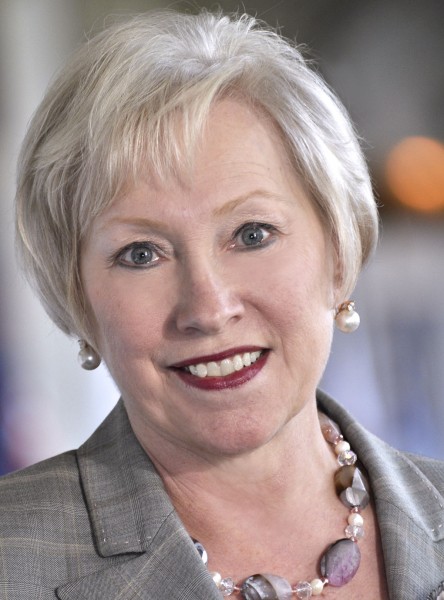
At the 2015 State of the University Address last month, SUNY Chancellor Nancy Zimpher announced plans to implement a statewide program that guarantees incoming first-year students complete their undergraduate degrees on time.
The proposed four-year graduation guarantee, “Finish in Four,” situates incoming first-year students with a trained adviser who monitors their progress in classes, helps them schedule courses each semester and keeps them on track with required credits for their major. The end goal is to ensure that students stay on track with their work and ultimately graduate with their degree in four years time.
According to Zimpher, three SUNY schools currently provide a program of this design: Buffalo’s “Finish in Four,” Oswego’s “Oswego Guarantee” and Fredonia’s “Fredonia in Four” — but said she would like to offer it at all 64 SUNY campuses statewide.
“This is the kind of program we need to take to scale,” Zimpher said. “Starting today, we will work to ensure that Finish in Four programs are available to all students, system wide. We want to take best practices from campuses across the system to the broadest possible scale, but it will require better, smarter investment from the state and philanthropic partners and continued relationships with our local businesses and industry partners.”
Finish in Four programs are voluntary for incoming first-year students to pledge into and are available at no extra cost, but do come with set expectations, according to advising.buffalo.edu. Students who pledge are expected to keep up their grades, be a full-time student, attend monthly advising meetings and remain in contact with their adviser throughout their duration in the program, which includes contacting them if they encounter any academic concerns.
In all three of the existing programs, if a pledged student is unable to get into a course that is required for their degree, their college will pay for the course to be taken when it is available, free of tuition costs or fees, Zimpher said.
“The deal is, students, if the course you need isn’t ready when you are, that’s on us — SUNY picks up the tab,” Zimpher said.
Finish in Four was implemented in 2012 by SUNY Buffalo and has since increased the college’s first to second-year retention rate to 88 percent compared to the national public four-year average of 74 percent, according to buffalo.edu. Fredonia’s similar program, Fredonia in Four, was launched in 1998 and currently garners an 81 percent retention rate in first-years.
According to fredonia.edu, Fredonia’s four-year program plan requires that incoming freshman declare their major at the time of their admission or by the end of their first year if they decide to pursue a liberal arts degree. In turn, should a student change their major, the four-year guarantee may not be applicable.
Fourth-year English and creative writing major, Jericho King said he believes the program has the potential to help a lot of students at SUNY New Paltz, but could also hinder the explorative experience of a student finding the right major due to the pressure of picking one on schedule.
“People need exploration to figure out what their major may be and sometimes that may not be within the parameters of the schedule that is created for them,” King said. “[Finish in Four] will be conducive to people who are good with structure and know what they want to do, but for the people who are not as structured, they will not be as apt to pledge to it.”
In addition to the statewide Finish in Four initiative, Zimpher also discussed a goal focused toward preparing high school students for college admissions processes.
To enhance the advisement provided to high school students pursuing college, Zimpher said she aims to place a SUNY college adviser in every school district in the state that can then partner with guidance counselors to provide the information that students need to “set goals, explore options and make plans” toward their college careers.
“We know that guidance counselors are stretched thin, in some cases just one counselor for 500, 600 or 700 students,” Zimpher said. “We know that many school districts don’t have the resources to target college advisement to every student.”
In addition to providing early advisement, Zimpher said she also wants to provide a user-friendly online course that teaches high school upperclassmen and their families about the many processes required by college admissions.
“This introductory course will be specifically designed to help students complete college admission requirements, build career skills, seek grants and scholarships and understand financing,” Zimpher said. “[It] will be the first of its kind anywhere because it speaks to every aspect of college readiness.”
Looking forward, SUNY New Paltz President Donald Christian said that administration is eager to learn more as to how they could implement Zimpher’s prospective plans here on the New Paltz campus.
“Many of the goals addressed by the proposals Chancellor Zimpher spoke about in her State of the University Address align well with challenges New Paltz identified in our strategic plan as well as the many issues in higher education that I write frequently about in my monthly reports to the campus community,” Christian said in a statement to The Oracle. “We are excited to learn more in the coming weeks as presidents meet with the chancellor and hear more details about these proposals.”
